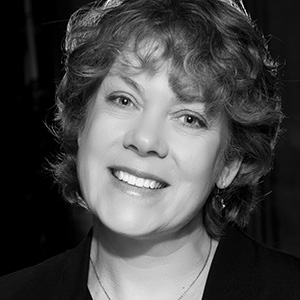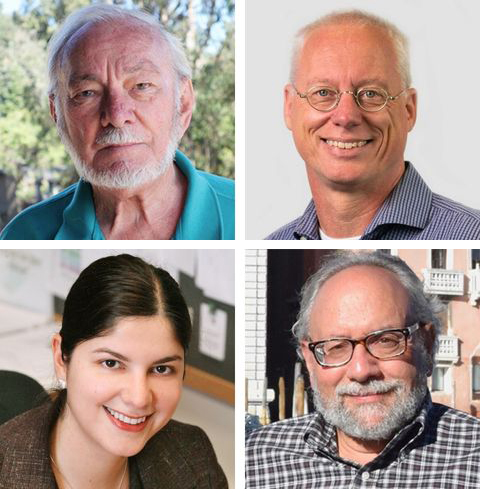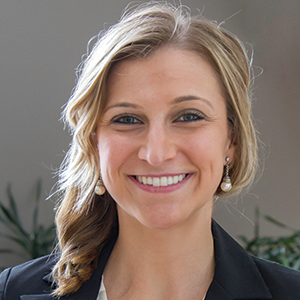Gaze into the proteomics crystal ball
Discover the hottest new tools to study protein biology this August at the American Society for Biochemistry and Molecular Biology’s 15th International Symposium on Proteomics in the Life Sciences. This five-day symposium will be held August 17–21 at the Broad Institute of the Massachusetts Institute of Technology and Harvard University. Each day will be packed with scientific sessions, networking opportunities and more.

Meeting organizer Kathryn Lilley, a professor and group leader at the University of Cambridge, said she wants the symposium to give attendees a glimpse into the future of proteomics. She first attended this meeting more than a decade ago.
“Although I was in awe of all these very decorated colleagues — leaders in their field — everybody was super welcoming,” Lilley said.
The 2025 organizing committee includes Lilley; A. L. Burlingame, professor of pharmaceutical chemistry at the University of California, San Francisco; Steven Carr, senior director of proteomics at the Broad Institute; Ileana Cristea, director of graduate studies at Princeton University and ASBMB’s Molecular & Cellular Proteomics editor-in-chief; and Bernhard Küster, professor of proteomics and bioanalytics at the Technical University of Munich.
Lilley said this year’s conference will continue to foster that welcoming atmosphere while showcasing speakers with diverse expertise and offering a program that examines the proteome from all angles.

Plenary talks from leaders in their fields will explore innovative proteomic and post-translational modification analyses in cancer and precision medicine, pioneering approaches in drug discovery through targeted protein degradation, and fresh insights into virus-host interactions that shape immune and metabolic responses. Lilley hopes attendees will discover unexpected opportunities to collaborate.
“These sets of speakers don't necessarily come together in a lot of the larger meetings in our field, so I think that itself is very interesting and very empowering,” she said. “You’ll get people who have not met but will see some sort of alignment in their research programs and their methodologies.”
In addition to plenary and session talks, organizers will select a few abstracts for short talks. Most abstract submitters will have the opportunity to present a poster.
“Everybody takes it very seriously, and every poster will get a lot of interest and a lot of traffic,” she said.
Looking ahead, the program will take a holistic view of the field and highlight emerging areas such as spatial proteomics, single-cell proteomics, multiomics, proteoforms and immunopeptidomics.
“There's going to be an element of crystal ball gazing and future-proofing proteomics as well,” she said.
Lilley encouraged researchers new to proteomics to attend and explore how these techniques might expand and diversify their work.
“Everybody, whatever career stage they are, needs to have their horizons expanded to be able to look for new opportunities,” she said. “This meeting is a great place to do just that.”
The regular registration deadline is July 23. Register today!

Plenary Lectures
- “Motif-based approaches for analyzing phosphoproteomic mass spectrometry datasets identify signaling dependencies in cancers lacking known oncogenic drivers” | Michael MacCoss, University of Washington
- “Shedding light on the dark viral proteome to advance our understanding of antiviral immunity” | Shira Weingarten–Gabbay, Harvard Medical School
- “Protein degraders: New insights and twists of molecular mechanism and drug design” | Alessio Ciulli, University of Dundee
- “Studying the mechanisms and cellular processes regulated by protein post-translational modifications” | Pedro Beltrao, Institute of Molecular Systems Biology, ETH Zurich Laboratory
- “Phosphoproteomics as a functional molecular read-out for personalized precision oncology” | Connie Jimenez, Amsterdam University Medical Center
- “The interface between metabolism and immunity within a virus microenvironment” | Ileana Cristea, Princeton University
Enjoy reading ASBMB Today?
Become a member to receive the print edition four times a year and the digital edition monthly.
Learn moreGet the latest from ASBMB Today
Enter your email address, and we’ll send you a weekly email with recent articles, interviews and more.
Latest in People
People highlights or most popular articles

Building a career in nutrition across continents
Driven by past women in science, Kazi Sarjana Safain left Bangladesh and pursued a scientific career in the U.S.

Kiessling wins glycobiology award
She was honored by the Society for Glycobiology for her work on protein–glycan interactions.

2026 ASBMB election results
Meet the new Council members and Nominating Committee member.

Simcox wins SACNAS mentorship award
She was recognized for her sustained excellence in mentorship and was honored at SACNAS’ 2025 National Conference.

From humble beginnings to unlocking lysosomal secrets
Monther Abu–Remaileh will receive the ASBMB’s 2026 Walter A. Shaw Young Investigator Award in Lipid Research at the ASBMB Annual Meeting, March 7-10 in Washington, D.C.

Chemistry meets biology to thwart parasites
Margaret Phillips will receive the Alice and C. C. Wang Award in Molecular Parasitology at the ASBMB Annual Meeting, March 7-10 in Washington, D.C.

